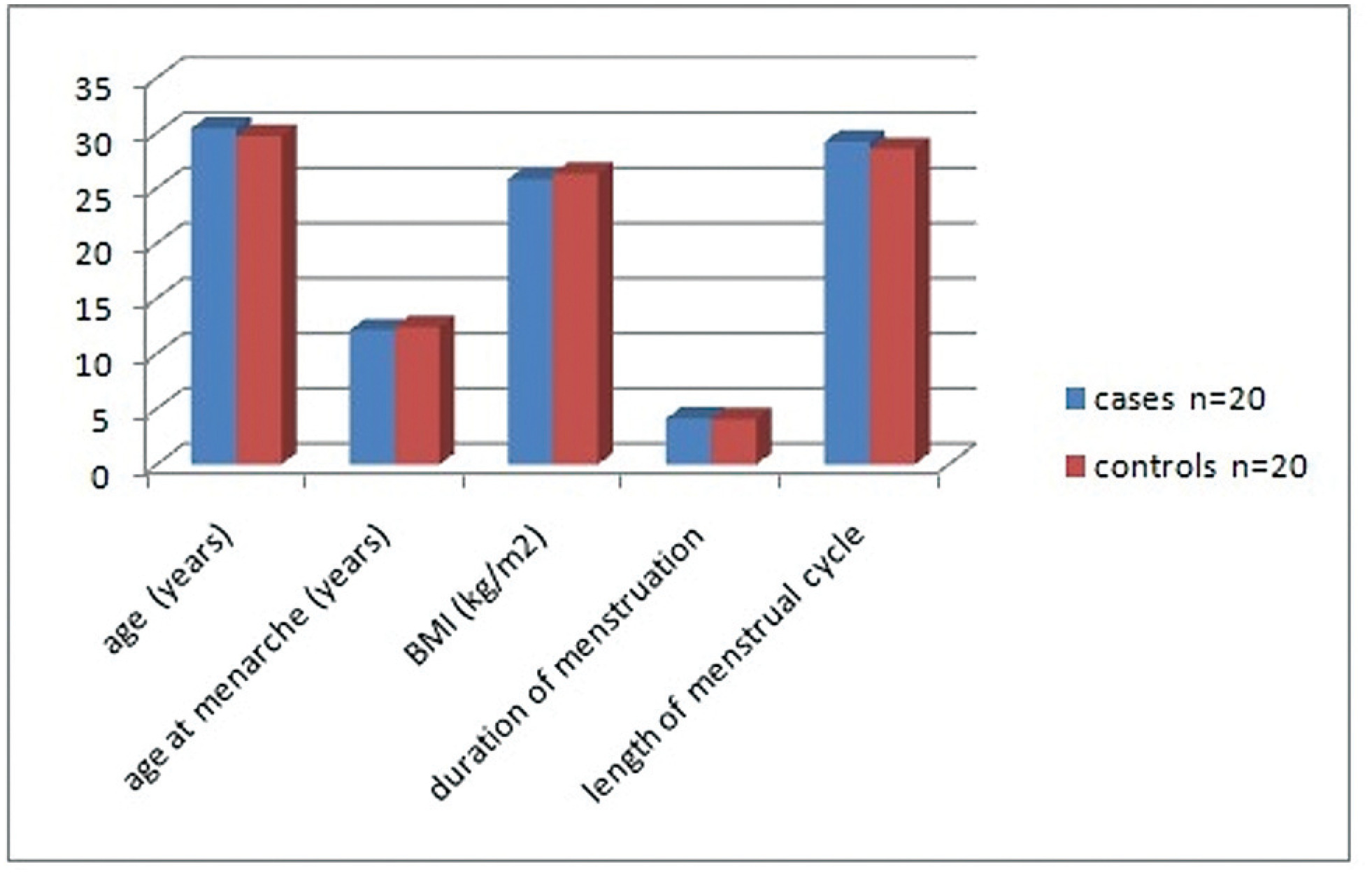Summary
Revista Brasileira de Ginecologia e Obstetrícia. 2023;45(11):676-682
Recurrent miscarriage has been linked to hormonal disturbance due to dysregulation of its receptors rather than to the availability of the hormone. We aimed to investigate endometrial expression of progesterone and estrogen receptors in relation to serum and endometrial hormonal levels in unexplained recurrent miscarriage.
The present case control study included 20 cases with unexplained recurrent miscarriage and 20 parous women as controls. Ovulation was confirmed using an ovulation kit and 10 to 12 days after detecting the urinary luteinizing hormone surge, all women were subjected to a blood sample and to an endometrial biopsy. Progesterone and estrogen levels were measured in serum and in endometrial tissue and receptor concentrations were in the endometrial sample.
Women with recurrent miscarriage showed significantly lower concentration of receptors in both the cytoplasm and the nucleus of endometrial tissue compared with controls. The nuclear/cytoplasm ratio of progesterone receptor was significantly higher in cases compared with controls, implicating that recurrent miscarriage is probably linked to nongenomic activity of the hormone; this was also significant for estrogen receptor. Serum progesterone and estrogen hormonal levels were comparable between groups while both hormones were significantly reduced in the endometrium of recurrent miscarriage cases. Receptors significantly correlated with endometrial hormonal level but not to serum level.
Recurrent miscarriage might be linked to reduced endometrial progesterone and estrogen receptors and appears to be more related to nongenomic activity of progesterone. Endometrial receptors expression correlates to tissue hormonal level rather than to serum hormonal level.

Summary
Revista Brasileira de Ginecologia e Obstetrícia. 2023;45(11):683-688
It is well known that female infertility is multifactorial. Therefore, we aimed to compare the effects of thyroid dysfunction, vitamin deficiency, and microelement deficiency in fertile and infertile patients.
Between May 1st, 2017, and April 1st, 2019, we conducted a retrospective case-control study with of 380 infertile and 346 pregnant patients (who normally fertile and able to conceive spontaneously). The fertile patients were selected among those who got pregnant spontaneously without treatment, had a term birth, and did not have systemic or obstetric diseases. The levels of thyroid-stimulating hormone (TSH), triiodothyronine (T3), thyroxine (T4), anti-thyroid peroxidase (anti-TPO), vitamin D, vitamin B12, folic acid, ferritin, and zinc of both groups were compared.
There was no difference between patients in the infertile and pregnant groups in terms of low normal and high serum T3 and T4 levels (p = 0.938; p > 0.05) respectively, nor in terms of normal and high anti-TPO levels (p = 0.182; p > 0.05) respectively. There was no significant difference regarding patients with low, insufficient, and sufficient vitamin D levels in the infertile and pregnant groups (p = 0.160; p >0.05) respectively. The levels of folic acid, ferritin, and zinc of the infertile group were significantly lower than those of the pregnant group.
The serum levels of folic acid, ferritin, and zinc in infertile patients presenting to our outpatient clinic were lower than those o the fertile patients.